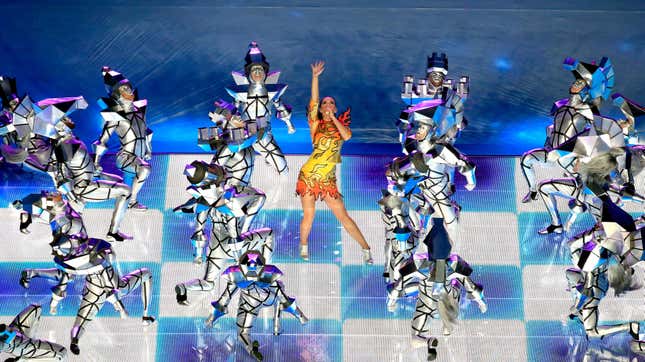Incredibly Profitable Super Bowl Halftime Show Asks Pro Dancers to Perform for Free
Dance artist and industry activist Taja Riley says the requested “African American movers” shouldn’t be working for free.
EntertainmentEntertainment

The Super Bowl—the biggest annual spectacle of braun, billionaires, and ad revenue —hasn’t even happened yet, but controversy is already clouding the NFL’s upcoming Pepsi halftime show.
On Thursday, professional dance artist and activist Taja Riley, who has toured with Janet Jackson, performed alongside Beyonce in her 2016 Formation halftime show, and danced in Rihanna’s televised Savage x Fenty shows, posted screenshots on Instagram from dancers around the industry who were asked to “volunteer for free” as field performers for the upcoming Super Bowl halftime show. The show is set to feature Los Angeles’ iconic musical artists Dr. Dre, Snoop Dogg, Eminem, Mary J. Blige and Kendrick Lamar.
Riley’s post includes emails allegedly sent by a Super Bowl coordinator and forwarded to professional dance artists by dance agency Bloc LA, as well as texts from a dancer in the “field cast” hoping to recruit other artists to participate in the show. That dancer wrote that a casting manager wanted “predominantly African American movers,” although the field performers would be doing “very little dance.”
-

-

-

-

-

-

-

-

-

-

-

-

-

-

-

-

-

-

-

-

-

-

-

-

-

-

-

-

-

-

-

-

-

-

-

-

-

-

-

-








































